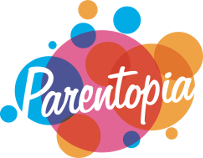FOR whatever the reasons that you and your partner are considering enrolling your child to early childhood education and care, know that there is never just one reason.
Whether it is for economic reasons, or that your child is ready to take on more education, or that you have one or more children at home that are too young for childcare, you are some of the millions of parents who face the question, “is my child ready for daycare?”
In Australia, there are many choices that are available to you. Fundamentally, they are:
- Long daycare (typically from 7.30 am to 6.30 pm).
- Community preschool (for 4- and 5-year-olds, normally usually from 9 am to 3 pm).
- Family daycare (typically from 7.30 am to 6.30 pm).
Only long daycare and family daycare would attract the Federal Government’s Child Care Subsidy that would help reduce fees. Your combined household income has a direct influence over how much government subsidy you will receive (see https://www.humanservices.gov.au/individuals/services/centrelink/child-care-subsidy/how-much-you-can-get/your-income-can-affect-it).
Which service should I enrol my child at?
Finding an early childhood education and care service provider will be your next challenge. This can be done via the Federal Government’s Child Care Finder (see https://www.childcarefinder.gov.au/) or Parentopia (see https://www.parentopia.com.au). Such sites will help inform you of where services are and whether they may have availability. Sometimes, depending on their respective published profiles, they may show their fees too.
Having said that, as much as the government wants you to think they are all providing the same kind of educational curriculum and care (using a government rating system since 2012), the actual reality is that they do not and you will have to visit each of them to size each of them up.
Which should I be looking for?
There is a myriad of things parents should look for in any early childhood education and care service. And since most services are different because they reflect the emphasis of their community as well as leveraging the strengths of their staff (ie educators and teachers), the bare minimum things you should be looking for are:
- Do the educators and teachers know each child by their individual names without assistance (eg names on hats)?
- How do they handle unique needs of children under their care (eg medical issues, marital states)?
- What kinds of mechanisms does the service use to engage with parents to communicate and discuss the needs of their children?
- Can you see if they have an “open door” policy, not just when families can come and visit at any time, but also easy access to information?
- Have they consistently leveraged other parents’ information about their children’s experiences and interests in and outside of their home in order to boost their children’s learning and awareness?
- When there are problems with children (and there will always be), how are they handled?
- What resources does the service provide to help you as parents when your children are back in your care?
These can be explored through interactions with the service’s staff, especially the approved provider, centre director and educational leader. Conversations with and feedback from other parents can be found through site visits as well as their Facebook pages (although such online comments tend to be either effusively good or bad.)
A useful factsheet can be found via https://www.startingblocks.gov.au/at-child-care/preparing-to-start/
How to enrol my child?
Once you have decided which service you would like to enrol your child at, you will be asked to provide the following information:
- Your child’s birth certificate.
- Your child’s Centrelink Customer Reference Number (CRN).
- Your family’s contact details.
- Contact details and information on who you authorise to collect your child from the service and who may be in contact in the event of an emergency and you cannot be reached.
- Information about your child, including their eating and sleeping routines, interests, levels of abilities, past and current illnesses if any, allergies, as well as your child’s health care contacts (usually your General Practitioner).
- Your child’s immunisation history (which is a statement from the Australian Childhood Immunisation Register on the Department of Human Services website (humanservices.gov.au)
- Chiang Liam, CEO Childcare Alliance of NSW.


